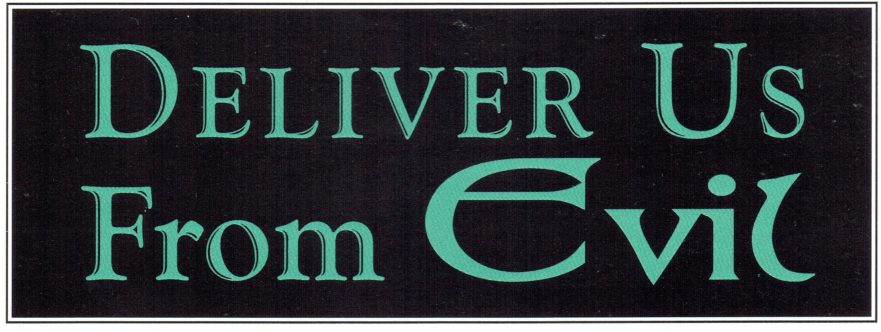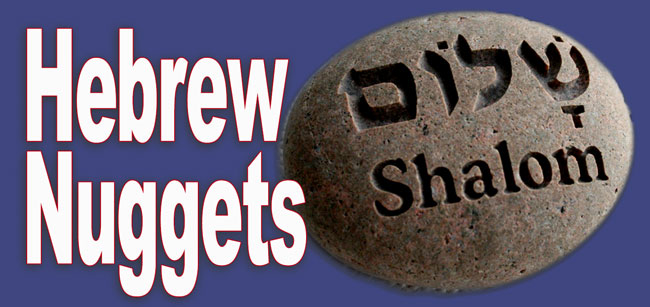The King James Version translates Genesis 29:17 as follows: “Leah was tender eyed; but Rachel was beautiful and well favoured.” The New International Version has, “Leah had weak eyes,” while the New American Bible reads, “Leah had lovely eyes.” What did the Hebrew original mean to say?
The Angel Who Has Delivered Me from All Harm
Dr. Horst Krüger, Jerusalem Perspective’s representative in Germany, has suggested to me that Genesis 48:16 may be part of the background to a phrase found in the Lord’s Prayer. I believe that Dr. Krüger has made an important discovery.
Deliver Us From Evil

Just as good poetry can convey multiple allusions, so “Deliver us from evil” can carry a variety of notions of protection from doing and experiencing evil.
The Sweetness of Learning

Although the Gospels give little information concerning Jesus’ childhood, we can suppose that in his formative years Jesus received a good Jewish education. Dr. Wilson gives us a glimpse into the Jewish way of training a child.
“He Shall Be Called a Nazarene”

One of the titles given to Jesus was “Nazarene.” Where did the title come from, and did it have any special significance? Ray Pritz traces the title’s origins.
What Is the Priest Doing? Common Sense and Culture

Common sense is connected to cultural expectations. What is understandable in one culture may be opaque in another.
Who Is a Jew in the Gospels?

Most English translations consistently translate the Greek word Ἰουδαῖοι (Ioudaioi) as “Jews.” But this inflexible translation has often contributed to an anti-Semitic interpretation of the New Testament.
Sidebar: “Ears of Corn”?

Does the New Testament depict the disciples picking yellow sweet corn (maize) in firs-century Israel?
The Sons of His Will

Christmas brings many carols and cards containing the words from Luke 2:14, “Goodwill to men” and “Peace to men of goodwill.” The angels praised God with words that in English may sound like a politician wishing us to “Have a nice day.” Most of us sense that these words reflect something deeper, but why did the angels use such seemingly innocuous words?
The Syndicated Donkey

Randall Buth may have discovered a significant idiom in the Greek text of Luke. This idiom could help us in determining the original language of Jesus’ biography. In Luke 19:33, did the donkey that Jesus rode into Jerusalem on Palm Sunday have more that one owner as the Greek text states?
Hebrew Nuggets, Lesson 4: Jesus’ Hebrew Name (Part 4)

Jesus’ Hebrew name is composed of three syllables: ye·SHU·a‘. In this lesson we will learn the two sounds of the final syllable of Jesus’ name. The fifth sound in Jesus’ Hebrew name יֵשׁוּע is “a” as in the word “father.” Like the tseRE and the shuRUK, this sound is a vowel. The symbol used to represent this sound is called paTAḤ. It is indicated by a horizontal line below the letter with which it is sounded. Here it appears below the last letter of ישועַ (yeSHUa‘).
Hebrew Nuggets, Lesson 3: Jesus’ Hebrew Name (Part 3)

In this lesson we will learn the two sounds of the second syllable of Jesus’ Hebrew name. The first sound of the second syllable of יֵשׁוּעַ (ye·SHU·a‘) is the “sh” sound. This is represented by ש (shin), the twenty-first letter of the Hebrew alphabet. Written with three points or teeth, it got its name from the Hebrew word for “tooth” because of the pictograph upon which it was based.
Hebrew Nuggets, Lesson 2: Jesus’ Hebrew Name (Part 2)

Many of Jesus’ words were spoken against a profoundly Hebraic background. We believe that a knowledge of Hebrew is central to understanding much of what Jesus said, and what was written about him in the Gospels. This is the second of a series of articles about the Hebrew language. Hopefully, these “nuggets” will encourage you to explore the riches Hebrew study can offer to those who want to understand the Bible more fully. The second sound in Jesus’ Hebrew name, יֵשׁוּעַ (ye·SHU·a‘), is a vowel. Hebrew vowels are represented by signs that are placed under, or sometimes, to the left of consonants (letters). A vowel is pronounced after the consonant that carries its sign.

